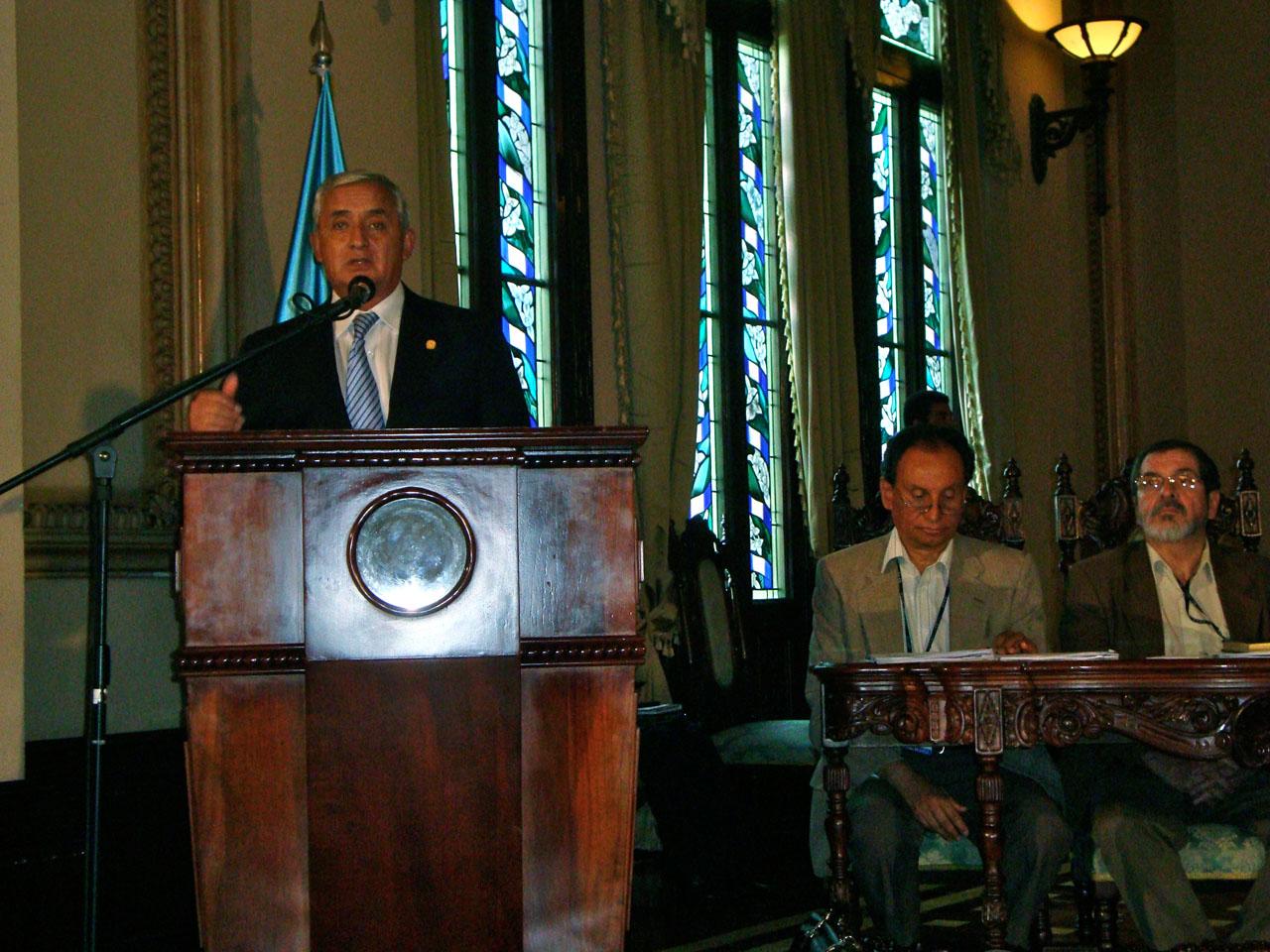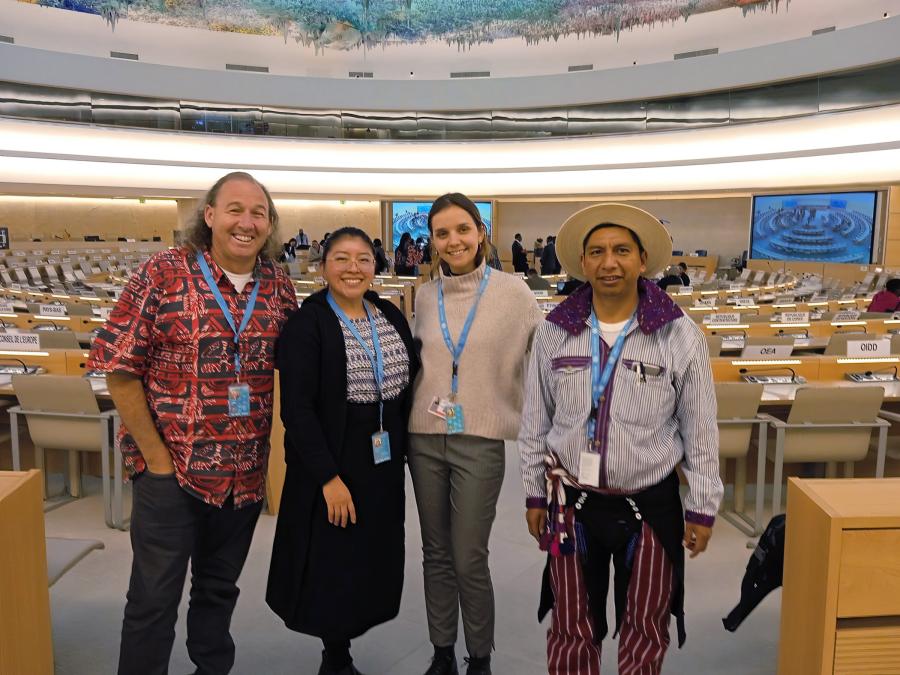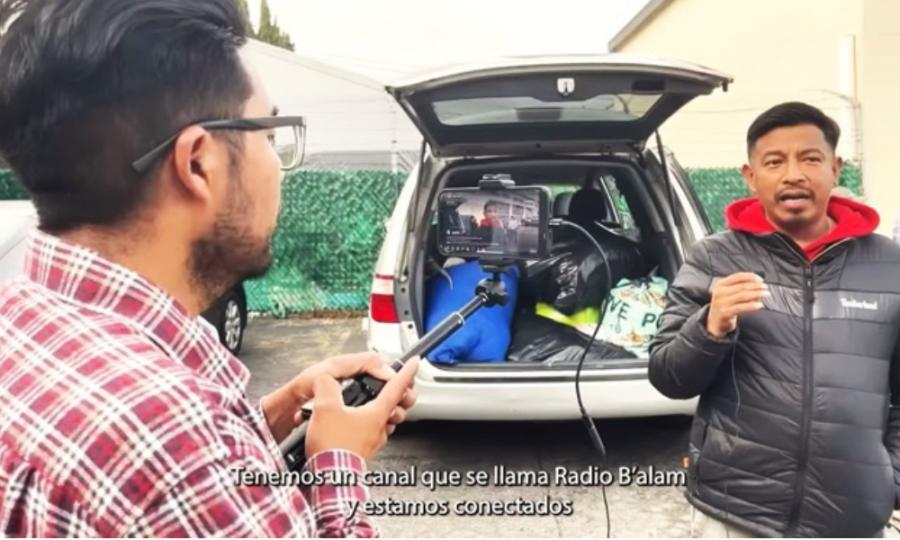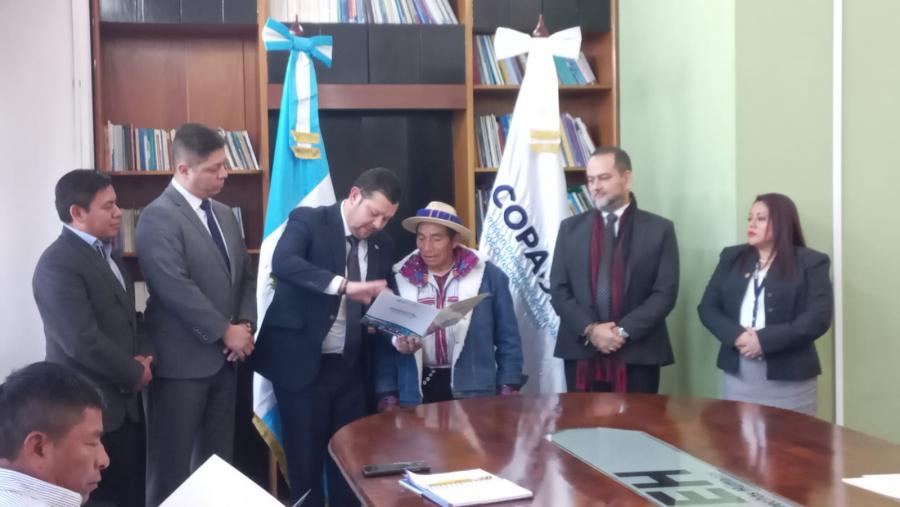
The president of Guatemala met with leaders of the community radio movement and participants in the Indigenous and Campesino March on April 19th in follow-up to the demands brought by marchers during their nine-day trek from Coban, Alta Verapaz to Guatemala City at the end of last month.
The meeting was held in the presidential palace in Guatemala's City’s historical center, and lasted over six hours as government officials responded point by point to the marchers’ demands and Indigenous leaders reacted.
President Molina initiated the meeting, giving marchers hope of a positive solutions: “We don’t want to react to your complaints… and they are legitimate complaints, reflecting problems that have been apparent for tens, hundreds of years- I don’t have to tell you that- you know that better than I do.”
Despite the president’s Powerpoint chart showing that 90% of the issues had been resolved in favor of the marchers, leaders expressed that their demands had not been complied with. However, Daniel Pascual, leader of the CUC indicated that he felt the discussions were headed in the right direction.
The Issues (full text available in Spanish here)
Agrarian debt- The government will begin a process through which small farmers in the Chorti region can begin to repay their ‘debt’ through government subsidies on agricultural production.
Violent evictions in the Polochic Valley- the government promised to provide 300 families access to land for farming, and 300 more the following year, “depending on the capacity of the budget.”
Mining Moratorium- This demand was declared “impossible” because it would violate the rights of foreign investors to their private property.
Militarization- The government promised to withdraw standing armies from areas of ‘social conflict’. However, military presence has continued in many areas since the meeting, including the community of San Juan Sacatepéquez where the community has been active in protesting operations of the company Cementos Progresos.
Community Radio- President Otto Perez stated that he would make his “best effort” to forward the Bill 4087 for Community Media, but reminded that his party is just one of seven that can decide on the bill’s approval. He indicated that the legislate branch must move forward on bills that have spent years on the agenda without resolution.
[[{"type":"media","view_mode":"full","fid":"61013","attributes":{"alt":"","class":"media-image media-image-right","height":"600","style":"float: right; width: 375px; height: 295px;","typeof":"foaf:Image","width":"763"}}]]Twenty representatives of community radio stations were present at the event to broadcast the duration of the meeting online and on the air to their local audience. Anselmo Xunic, manager of the Cultural Survival’s Community Radio Project presented a speech to the president, “we are not trying to fight against the mass media– We only ask that Indigenous peoples be given a space within the radio electric spectrum." Alvaro Ramazzini, the Catholic bishop of the department of San Marcos, stated that he believes the president is under extreme pressure from the private sectors representing agricultural, mining industries. CS staff Alberto Recinos reiterated this point, adding as well pressure from the media industry who lobby against freedom of expression for Indigenous communities.
Recinos agreed with Pascual that overall, the meeting was productive. “It’s clear that this administration is showing political will to find solutions to the problems we have been facing. There is a commitment on their behalf to get the Bills that have been shelved back onto the congressional agenda,” said Recinos.
The next meeting was scheduled for May 22nd.



